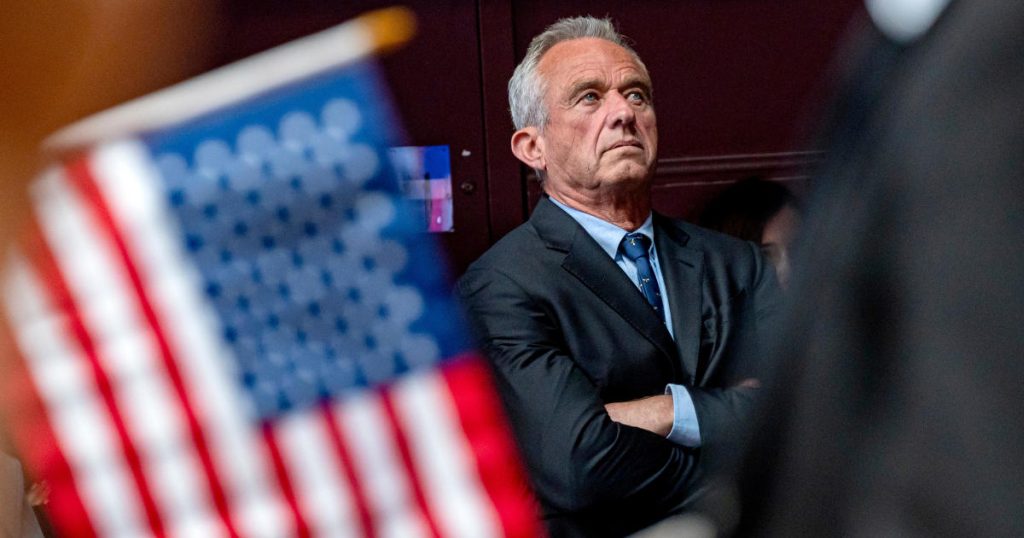Robert F. Kennedy Jr. is running for president as an independent candidate and is aiming to secure ballot access in all 50 states and the District of Columbia. Kennedy’s campaign has completed signature gathering in seven states so far, including Utah and Michigan. The super PAC supporting Kennedy, American Values 2024, has also collected enough signatures in Arizona, Georgia, and South Carolina. The goal is to secure the necessary 270 electoral votes for Kennedy to win the presidential election, which would require being on the ballot in over half the states.
Kennedy’s campaign is facing challenges in meeting various state regulations for ballot access and legal battles with Democratic groups aiming to undermine third-party campaigns. The Democratic National Committee has formed a team to challenge third-party candidates, arguing that a vote for any third-party candidate is a vote for Donald Trump, as only President Biden and Trump have a path to 270 electoral votes. Kennedy’s campaign denies accusations that he aims to help Trump by taking votes from Biden and insists that their campaign is disruptive to both major parties.
Collecting enough signatures to secure ballot access in each state is a costly and time-consuming process. Kennedy’s super PAC estimates that it will cost around $40 to $50 million to collect all the necessary signatures. While Kennedy’s running mate, Nicole Shanahan, has financial resources, the legal battles over the signatures are expected to be more challenging. The Democratic Party is likely to fight hard to invalidate Kennedy’s signatures, and there are already attempts to block him from getting on the ballot in Hawaii and Michigan.
Historically, there have been independent candidates who secured ballot access in nearly all states, such as George Wallace in 1968 and Ross Perot in 1992. However, the requirements to get on state ballots have become more onerous in recent years, making it difficult for third-party candidates to compete with major parties. Despite these challenges, experts believe that Kennedy has a good chance of getting on most, if not all, state ballots. However, Kennedy’s support is expected to drop off before the November election, and it’s unclear which major party candidate stands to lose more from his presidential bid.
In conclusion, Robert F. Kennedy Jr.’s independent presidential campaign faces various obstacles in securing access to all 50 state ballots. Despite the challenges, Kennedy and his supporters are determined to pursue the necessary signatures and fight legal battles to compete in the 2024 election. The implications of his candidacy on the major party candidates remain uncertain, but Kennedy’s goal to disrupt the traditional two-party system has sparked interest and concern among political observers. Only time will tell how his campaign impacts the outcome of the election.


